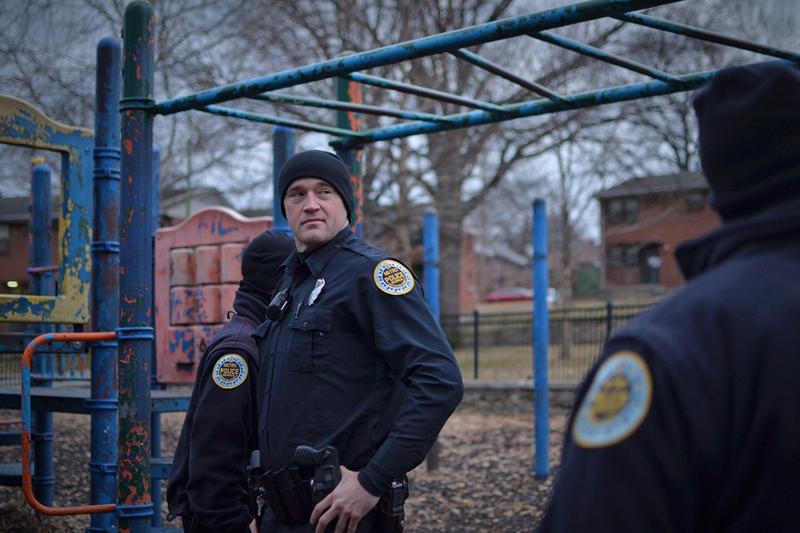
Nashville police officers are trying community engagement. It’s a strategy where they get out of their cars and talk to residents one on one — a change in direction for the police department, which has mostly relied on conducting traffic stops.
Many policing experts say this new approach can more effectively reduce crime, but gaining residents’ trust can take time.
That’s the case at the James A. Cayce Homes in East Nashville, where a community engagement team will often walk the sidewallks.
Finding moments to interact with residents
Officer Wesley McClelland and his two partners, Joseph Maeser and William Clemmons, say they do this because they’re looking for people to engage.
“Just anyone out playing, anyone hanging out,” says McClelland. “Any type of issues. I mean if there’s a criminal issue, we address it. Anything we can help people with we try to address it,” adds his partner Maeser.
Clemmons says he hopes residents will get used to police being around, so eventually they’ll call them.
“It gives us an opportunity like at the stoplight I had a lady stop and ask what was wrong. And we told her nothing. So now let’s say she was on foot or in front of her house, she’d be more at ease to come out and talk.”
From a distance, it looks like the officers are simply meandering through the neighborhood.
But, they’re actually searching for excuses to strike up a conversation — like when the officers see a wheelchair thrown on the street. They know the woman it belonged to, so they knock on her door to return it.
“These officers had knowledge that particular unit had someone handicapped and wheelchair bound,” said Clemmons.
That’s a type of clue, he says, that would make the officers decide to take some action.
“We knocked on the door made contact with that person. She asked if we could set it inside and we did, and she thanked us as we walked along,” said Clemmons.
Not about enforcement, but about building relationships
The officers say these types of interactions have been common since these walks started happening about two years ago. Officers stop to help an elderly person, play basketball with some of the teenagers in the neighborhood, or greet kids at bus stops.
“It’s not about enforcement,” says East Precinct Commander David Imhof. “It’s about making a lot community contacts and talking with folks and building relationships.”
This year the department decided to start a formal engagement team to enhance these efforts. Imhof says this year the police department placed another team of officers to do this work in Cayce.
“We’ve seen a lot of progress in this part of town and east… but, there’s still a lot of work to be done.”
The department has been trying this throughout more parts of Nashville since a New York research group reviewed its millions of traffic stops. The group found officers ended up disproportionately stopping African American drivers. They also found the stops weren’t reducing crime in the city.
So, researchers recommended that Metro try community engagement instead. They said it would help officers tackle crime more proactively.
Still some uncertainty to overcome
Officer Clemmons, who like the other officers is white, says it
can be challenging for some officers to relate to residents.
“Some of the kids may if they’re older have formed an opinion based on their environment,” said Clemmons, who added he feels like race hasn’t been an issue for him, because he grew up going to school in a neighborhood similar to Cayce.
“I have gotten over that hurdle by sharing my background with that person, you know, ’cause they identify with the areas I grew up. But other officers may not have that luxury,” said Clemmons.
And that can create some awkwardness — like when Officer McClelland notices a young woman peeking through her door. Shawntese Bradford is wondering why there are police around. McClelland tries to strike up a casual conversation. But, Bradford seems anxious.
“Do you think having the police around is better or worse?” McClelland asks Bradford. He’s surprised when she says she’s unsure and admits she often hears gunshots in her apartment.
“Do you call the police when you hear?” he asks further.
“It’s not really a good chance that you are gonna know who did it. We just stay in the house, lock our doors and mind our business,” Bradford responds.
Later McClelland reflects on that interaction.
“I kind of take that she didn’t want our help with the issues going on,” McClelland shrugs. “But we’ll be out here trying anyways.”
It’s conversations like this, Officer McClelland says, that make him realize it’s going to take time for this team to really embed itself into the community.


